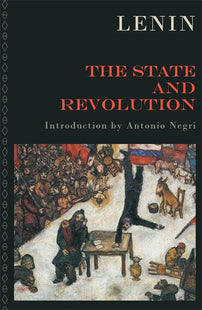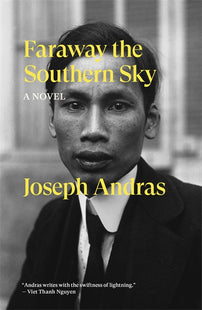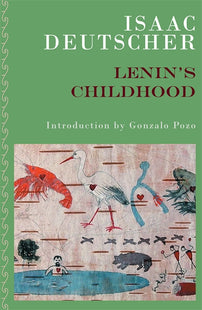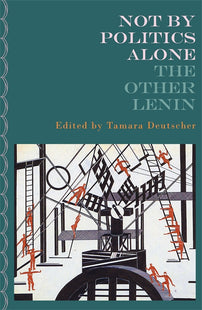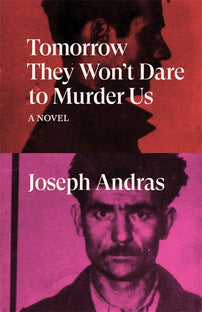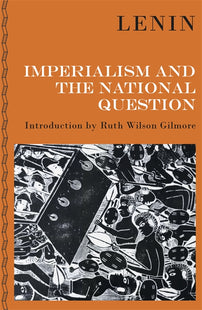The Novel of Lenin: Chapter One

Chapter One
1870-1885: The Birth of Vladimir, the Assassination of Tsar Alexander II
[The Oulianov family grows by one with the birth of Vladimir. His father obtains a diploma in physics and mathematics. His mother is a teacher. Eleven years later Tsar Alexander perishes in a bombing. ]
We are in 1870. Somewhere along the shores of the Volga, in the city of Simbirsk (today Ulyanovsk), several hundred kilometers to the east of Moscow, the Oulinav family grows by one. Vladimir has just been born. He arrives in the world after Anna and Alexandre. Three other children will follow. Their father is named Ilya and their mother Maria. The former, with a diploma in physics and mathematics, earns his daily bread as a public-school inspector; the latter, a polyglot, works as a teacher. Ilya is faithful to the Russian Orthodox Church and Maria, Lutheran by upbringing, keeps her faith at a distance. The family is a mix: Kalmyk, Russian, Swedish, and Jewish. Some also say Tatar or Chuvash. Vladimir’s parents, who baptize him on his 6th day, believe in the Tsar. They are conservative: a conservatism tinted with liberalism.
The Tsar himself prepares to celebrate his 52 years. He is named Alexander II, son of Nicolas I and Charlotte of Prussia. A photograph taken in this year shows a high forehead lined with dark, smooth hair. He sports braided epaulettes and a great moustache which disappears into his beard. A shadow is cast under his mouth. This is how he rules over his empire. He is also the Grand Duke of Finland. His father was nicknamed the “stick” and the “policeman of Europe,” and he was not named as such in vain: the man with the iron eye was a warhawk. He struck hard, widely. His son has a lighter hand. Nine years prior he abolished serfdom. He also lightened censorship and outlawed corporal punishment. One will thus call him a “reformer.”
Of course, Vladimir knows none of this. He is only just learning to walk and speak, and in no hurry. He has a disproportionately large head which he will keep for his entire life. And then he grows. He soon loves to swim and is a good student. He takes Greek and Latin, develops a taste for history, cherishes the game of chess, works hard, and has a bad temper. The accounts are unanimous: Vladimir is mocking, turbulent, insolent, impulsive. He wants to be right in all circumstances. He also suffers from myopia – the future reason for his constantly furrowed gaze which will lead his interlocutors to believe that he never misses a word.
In Vladimir’s 11th year, the Tsar dies. Not of some illness but of a bomb thrown at his feet while he crossed Saint Petersburg by carriage. Responsible for the attack, the revolutionary organization Narodnaya Volya – The People’s Will, in English. The group is not old, only 2 years old. But it already has clear ideas. Total liberty, for example. Or the end of imperial power. One can’t exist without the other. In any case, these are the kinds of ideas that are stirring up the country and the hard-headed. They are anarchists, populists, or nihilists. They condemn authority, they reject the law of their fathers. They are socialists. They go to the people. The Paris Commune is 10 and Bakunin died 5 years ago. Old Marx, worn out in his English exile does not manage to finish Capital. So, on this day, March 13, 1881, after the digging of a tunnel and the concocting of explosives, a first bomb goes off. It misses its target. The Tsar climbs down to approach the revolutionaries; another bomb appears, and this time, it is the last time. Alexander II will quickly succumb to his wounds, but not before receiving his last sacraments. His son immediately becomes Alexander III. He is 36 and has a forehead even higher than his father’s.
Narondaya Vola believes in individual terrorism to lift up the masses. They read Sergey Nechayev. Better still: they love him, that child of workers. He was friends with Bakunin before his passing. The revolution could not, thought the latter great anarchist, have “violence for the body and lies for the mind." Let us then read Nechayev’s Revolutionary Catechism. The revolutionary must be devoid of feeling: he must subordinate everything to the revolution. He is the enemy of morality and laws, he has no use for doctrines. Erase love in itself, honor as well. The happiness of the people merits all of this. Clearly put: “Our task is terrible, total, universal, and merciless destruction.” Nechayev will soon die, condemned to forced labor, his body rotted by scurvy somewhere in Siberia. Narodnaya Volya has cut down the Tsar and the empire responds. It crushes the organization, and the son of the dead Tsar makes it known, in the month of April, that God has decided: autocracy will remain.
This text was originally published by L’Humanité in a special edition commemorating the centenary of Lenin’s death. Translated from the French by Patrick Lyons.
[book-strip index="1"]
